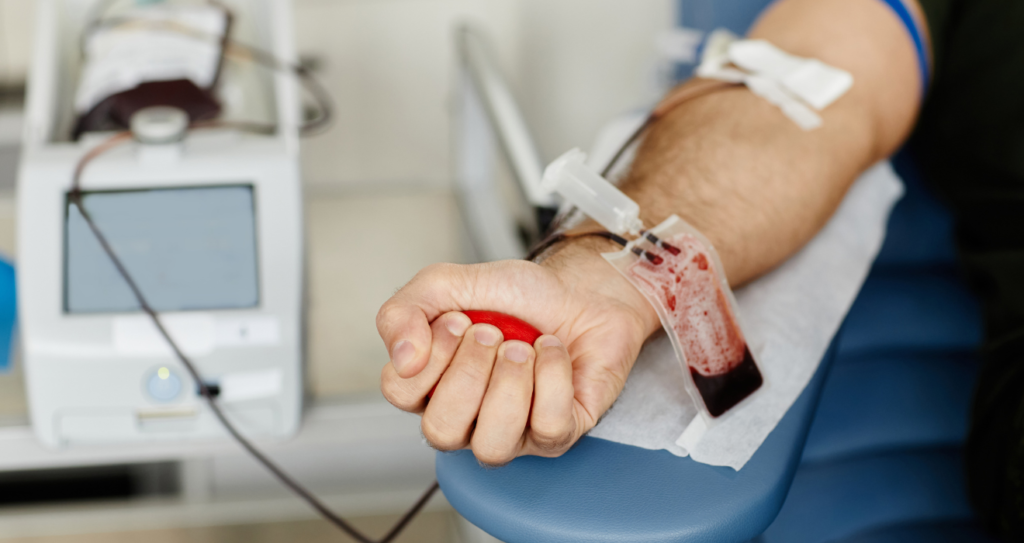Donor Program
A Donor program in the context of fertility refers to organized systems that allow individuals or couples to receive donated reproductive material—such as eggs, sperm, or embryos—to help them conceive a child. These programs are essential for those who cannot use their own eggs, sperm, or embryos due to medical conditions, genetic issues, age, or other reasons.

Types of Donor Programs
Egg Donation Program
In this program, women donate their eggs (oocytes) to another individual or couple. Egg donation is commonly used by women who cannot produce viable eggs, such as those with premature ovarian failure, poor egg quality, or women over a certain age.
Process
The donor undergoes ovarian stimulation (hormonal treatment) to produce multiple eggs.
The eggs are retrieved via a minimally invasive procedure.
The donated eggs are then fertilized with sperm (either from a partner or a sperm donor) to create embryos, which are transferred to the recipient’s uterus.
Types of Donors
Known Donor: A family member or friend donates eggs to the recipient.
Anonymous Donor: The donor is not known to the recipient. The process is coordinated through an egg donation agency or fertility clinic.
Open or Semi-Open Donation: The donor and recipient may meet or have limited contact based on mutual agreement, often arranged through the clinic.
Sperm Donation Program
Sperm donation helps individuals or couples who cannot use male partner sperm due to infertility, genetic conditions, or same-sex couples looking to conceive.
Process
The sperm donor provides a sample that is tested and frozen (cryopreserved) for future use.
Sperm is inseminated into the recipient’s uterus (intrauterine insemination, IUI) or used for in vitro fertilization (IVF).
Types of Donors
Known Donor: A friend or family member donates sperm.
Anonymous Donor: The donor remains anonymous and is selected through a sperm bank.
Open Donation: The donor and recipient may have limited communication, depending on their agreement.
Embryo Donation Program
Embryo donation occurs when an individual or couple donates embryos they have created through IVF but no longer plan to use
Process
The embryos are thawed and transferred to the uterus of the recipient, who then carries the pregnancy.
Embryo donation is a common option for couples struggling with both male and female infertility or when both partners carry genetic conditions.
Donor Types
Anonymous Donation: The embryo donors and recipients do not know each other.
Known Donation: The embryo is donated by a family member or friend.
Open or Semi-Open Donation: There may be some communication between donors and recipients, depending on mutual agreement.
Surrogacy Programs (using Donor Eggs/Sperm/Embryos):
A surrogate carries a pregnancy for another individual or couple. The pregnancy can be achieved using donor eggs, sperm, or embryos, depending on the intended parents’ needs.
Surrogacy involves detailed legal agreements, medical screening, and matching the intended parents with a suitable surrogate.
Key Considerations for Donor Programs
Screening and Selection: Donors undergo extensive medical, psychological, and genetic screening to ensure they are healthy and free of hereditary conditions. Their reproductive health is also assessed to ensure the viability of eggs, sperm, or embryos.
Legal and Ethical Concerns: Donor programs involve legal contracts to define the rights and responsibilities of donors and recipients. Laws vary by country or state, especially regarding anonymity, parental rights, and compensation.
Compensation: In many programs, donors (especially egg donors and surrogates) are compensated for their time and effort, though regulations regarding payment vary widely.
Emotional Aspects: Both donors and recipients may experience emotional and psychological complexities surrounding the donation process, and many programs provide counseling for both parties.
Reasons for Using Donor Programs
Poor egg quality, premature ovarian failure, age-related infertility, or absence of ovaries.
Male Infertility: Severe male factor infertility such as low sperm count or quality
Lesbian couples may use sperm donation, while gay couples may rely on egg donation and surrogacy.
Donors may be used to avoid passing on a genetic disorder to a child.
Single Parenthood by Choice: Individuals seeking to become parents without a partner often use donor programs.
Donor programs provide a pathway to parenthood for a wide variety of people who might not otherwise have the option of having a biological child.
